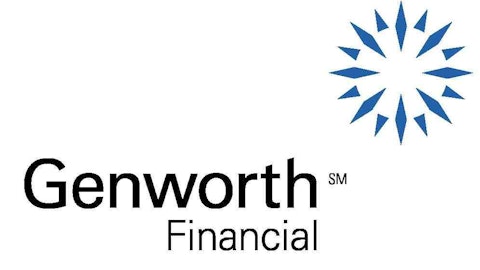There are many ways to play a recovery in the mortgage market, though some angles are more treacherous than others. Investors can choose between REITs (Real Estate Investment Trusts) that specialize in leveraged buying of mortgage debt, financial companies that invest in distressed residential real estate, or mortgage bond insurers.
Leveraged mREITs

Macroeconomic factors affecting mREITs
The holding of agency home loan securities by REITs has been increasing in the last few years, and this has caught the attention of the Federal Reserve. The total holding of mortgage securities by REITs has increased from $90 billion in 2008 to $340 billion last year. According to the governor of the Federal Reserve, growth of mortgage REITs in a credit market can be a symptom of excessive risk taking. According to many analysts, the Fed’s liberal monetary policy since the financial collapse of 2008 (with an aim of keeping the short term interest rate near zero) has created bubbles in many risk asset classes. Mortgage REIT’s have sold shares worth $3.5 billion this year. They also sold shares worth $16.3 billion in 2012 and a record $16.9 billion in 2011.
Mortgage insurers
Mortgage insurers like MGIC Investment Corp. (NYSE:MTG) are also evaluating the option of raising capital. MGIC Investment has been unprofitable for many years and the quarterly losses in the company’s latest results have increased to approximately $386 million ($1.91 per share) from approximately $135 million (67 cents per share) in the same quarter last year. Part of the poor financial performance can be attributed to the settlement charges of $267.5 million paid to Freddie Mac for a coverage dispute. The company has not had a profitable year since 2006. The main driver for raising capital for MGIC Investment is meeting the regulatory requirement of minimum risk relative to capital ratio of 25 to 1 (in December 2012, this particular ratio had declined to 44.7 to 1). MGIC currently has a P/B of 5.78. A rival of MGIC Investment, Radian Group Inc (NYSE:RDN), has already raised $689 million in a sale of stock and senior notes in the last week of February 2013. The mortgage insurance industry as a whole has been under a lot of stress since the housing prices crashed, as these companies have to cover losses to creditors when the homeowners default.
New mortgage originators
In another issuance related to home loans, Credit Suisse Group AG (ADR) (NYSE:CS) recently sold non-agency mortgage bonds worth $425.7 million. The top slice carries a loss buffer of 7.05%. DBRS, a rating agency, stated that the risks for the offering are poor the financial strength of some of the lenders and originators, the promise of Credit Suisse to repurchase the debt if the origination fails, and poor credit quality of a large percentage of borrowers. A positive attribute of the offering, according to DBRS, are the big down payments in the deal.
Unfortunately for investors, Credit Suisse Group AG (ADR) (NYSE:CS) is still being haunted by its past. The company will pay at least $400 million to settle investor lawsuits over its role in raising money for National Century Financial Enterprises, a healthcare financing company that collapsed back in 2002. Investors accused Credit Suisse of selling the financing company’s notes and supporting its creditworthiness. At the same time, investors claim that Credit Suisse was aware the company abused investor funds. Credit Suisse Group AG (ADR) (NYSE:CS) currently has a P/E of 27.35 and has a P/B value of 0.9.
Macroeconomic factors affecting new mortgage originators
The top slice of the mortgage bonds offering has been given different ratings by different agencies, illustrating how the views about the credit markets are diverging. According to another rating agency, S&P, the mortgages are of high quality, but have some weaknesses like geographical concentration of loans and some representations and warranties. Representations and warranties were cited as weaknesses in the deal by Fitch Ratings as well.
Non-agency mortgage bond offerings this year have already exceeded $1.5 billion, which is 50% more than the total issuance in either of the years 2010 or 2011. The total issuance in this year can easily be expected to surpass last year’s total of $3.5 billion as well. The divergence in ratings assigned to some of these issuances (as witnessed in the recent offering by Credit Suisse Group AG (ADR) (NYSE:CS)) indicates that ratings agencies are giving different priority to different risk factors.
Residential property investment
Some private equity firms have made big bets on a real estate recovery in recent years. Carlyle Group LP (NASDAQ:CG) has been investing in buying and building apartment properties. Since 2008, the private equity firm has made investments totaling approximately $2.5 billion in the US real estate market, out of which only $10 million were made in single family homes. According to the management of Carlyle Group, the advantages of buying apartments instead of single family homes are a more organized market, marketable securities, and fewer maintenance costs. Carlyle Group currently has a P/E of 103.83 and P/B of 0.13. There are other private equity firms, however, like The Blackstone Group L.P. (NYSE:BX) and Colony Capital, that have purchased foreclosed single family homes, hoping that they will increase in value as the housing market recovers.
Valuation
In general, I don’t trust the valuations of many financial companies. Thus, I don’t like paying premiums on potentially phony-baloney book values. I am therefore not interested in anything with a book value above 1. Fortunately, there is less judicial risk in leveraged mortgage REITs. Investors should consider these names as buy candidates when they trade below book value. In addition to reading more about these individual REITs, investors should also consider whether or not the distributions they make (which are not taxed as dividends, but like interest income) are appropriate for them. They are more attractive as components of a tax-advantaged account than a regular investment account.
The article How To Play The Mortgage Recovery Safely originally appeared on Fool.com and is written by Bill Edson.
Copyright © 1995 – 2013 The Motley Fool, LLC. All rights reserved. The Motley Fool has a disclosure policy.



